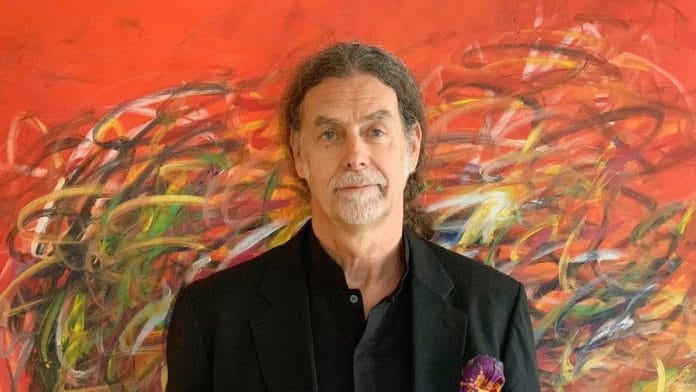New Delhi: German companies operating in India, especially the carmakers such as BMW and Mercedes-Benz, are finding it difficult to operate in the country due to the continued lockdown, but they are hopeful of tiding over the crisis, German Ambassador to India Walter J. Lindner said.
“The lockdown is affecting everyone. The economy is affected too and the car producers are affected as are the vegetable producers or rickshaw-pullers. For BMW, Mercedes, the know-how comes from Germany, but it is produced in India, but the material is coming from ten other countries in the world. The dependency in the car industry is striking,” Lindner told ThePrint during an exclusive interaction.
The envoy said global industries today depend on each other and, therefore, it is imperative for countries to work closely in order to ensure that businesses run smoothly and jobs are retained.
“When you (India) export the car, it is a ‘Made in India’ car, but that has products from 20 other countries. In a globalised world, if one chain is interrupted, it impacts everything else, including jobs of people,” he said.
“We are trying to see that we keep all these jobs,” Lindner added.
The envoy, meanwhile, said some of the German carmakers are now engaged in community work in India to help people fight the pandemic.
He said some of the carmakers that are based in Pune, Maharashtra, are now building hospitals and extending other kinds of assistance to help the local workforce.
“The German entrepreneurs that are based in India are working on setting up hospitals and doing community work. These German entrepreneurs in India are not here for a few months or years. They are here to stay and they love the country and identify themselves with the country. So in a crisis like this, they are working as if it is their own home,” he said.
The lockdown came into effect in India on 25 March. It has now been extended until 3 May, making it a 40-day containment period — touted to be the world’s biggest shutdown.
Also read: German minister commits suicide after being ‘worried’ over economic fallout from coronavirus
‘Germany waiting for HCQ shipments from India’
According to the German ambassador, more than 1,32,000 people have tested positive for the SARS-CoV-2 in Germany — with over 3,000 deaths so far.
However, compared to its neighbours such as Italy, France and Spain, the mortality rate in Germany has been under control.
Linder said Germany is waiting to get shipments of hydroxychloroquine (HCQ), an anti-malaria drug that is being used to treat Covid-19 patients, and paracetamol from India.
“India is a world producer for hydroxychloroquine and paracetamol… German firms have ordered from Indian companies some quantities. We are waiting for the material to arrive (in Germany). The paperwork has been done. (Our) foreign ministry and the PMO was very helpful,” he said.
Lindner said Prime Minister Narendra Modi had told German Chancellor Angela Merkel during a recent conversation that Berlin will get the medicines.
After revoking a blanket ban on the export of hydroxychloroquine and paracetamol earlier this month, India has now decided to export these medicines on a case-to-case basis depending on the availability of stock after meeting domestic requirements.
“International cooperation and fight against the virus are essential. Those countries that produce some key materials should show solidarity with others. We have to re-think how to intensify our cooperation in health (sector) in future,” he added.
Germany supports WHO, may pass UNSC resolution
Lindner said he believes that the World Health Organization (WHO), which has come under fire over its role in assessing the magnitude of the pandemic and also praising China where the virus had originated, is an important institution for handling public health crises.
“We support the WHO and we pay and we think it is a good institution,” Lindner said, adding Germany has worked with the organisation closely during the Ebola crisis in 2014.
The US Wednesday announced that it is temporarily halting funding to the WHO for taking China’s claims about the coronavirus “at face value” and failing to share information about the pandemic as it spread.
Lindner, however, said it will make an all-out effort to discuss China’s role and pass a resolution against the Covid-19 crisis at the UN Security Council (UNSC) as the pandemic threatens international peace and security.
“High time the UNSC discusses the pandemic and we will see if we can come up with a resolution… In the UNSC, together with other countries, we are trying to get a resolution done… Many countries had a reluctance that international health crises are not a threat to international security. We think, and many other countries think since Ebola, (that) pandemics like these can lead to destabilisation. This can endanger the peacekeeping troops and pose a threat to international security,” the German envoy added.
Germany, a non-permanent member of the UNSC, will hold the Presidency (chair) of the 15-nation council in July. At present, the UNSC chair is the Dominican Republic.
Also read: Why Angela Merkel quarantining herself is a blow to Europe’s fight against coronavirus






